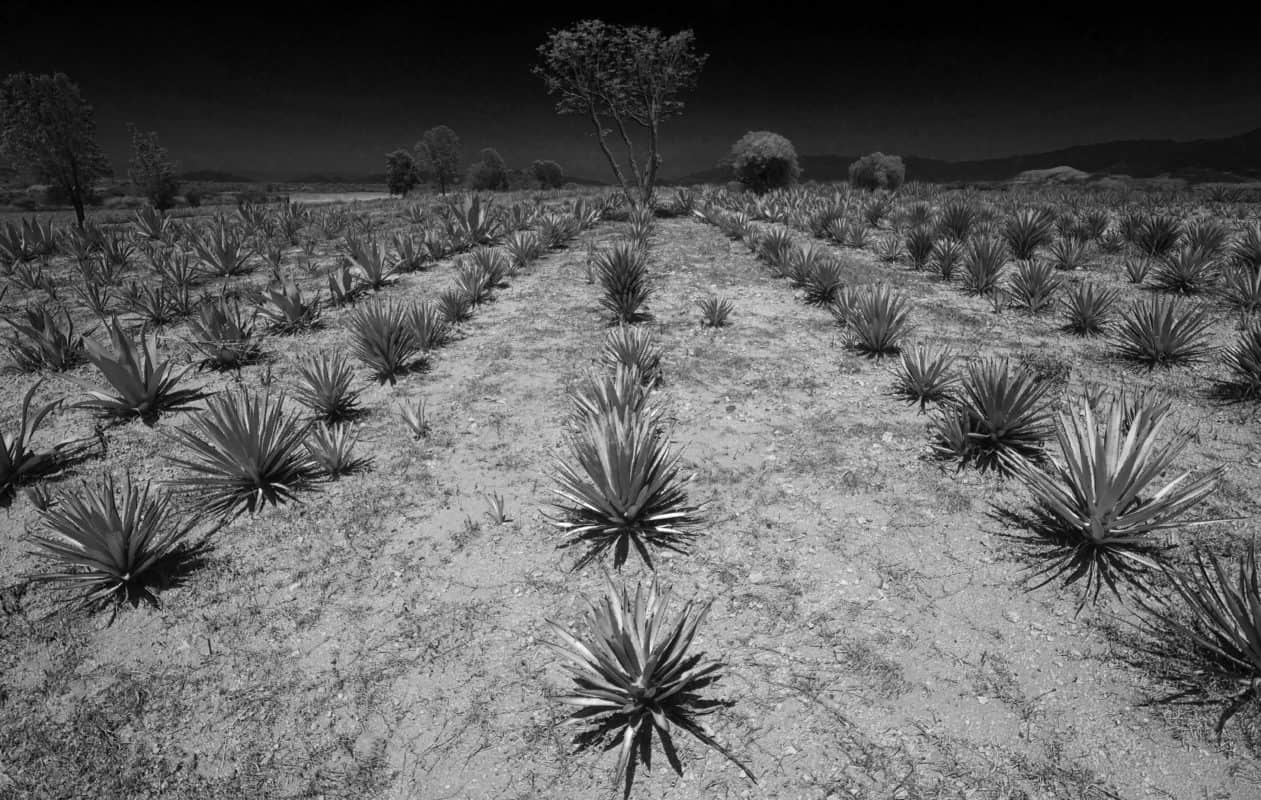Although they both come from the agave, Mezcal and Tequila have, over time, become two very distinct and unique entities, with technical and taste differences as well as social and economic ones.
To understand the differences between them, we must first look at their relationship. Indeed, Tequila is to Mezcal what Bourgueil is to wine, i.e. it is nothing more than a type of Mezcal, a grape variety if you like. “Mezcal” is the name historically attributed to all spirits derived from the Agave plant, of which there are more than 150 different species. Tequila is the result of the distillation of a specific species of Agave, the agave azul, and is therefore part of the large Mezcal family. In fact, however, no one associates the two spirits any more, tequila having taken the path of industrialisation and mass production, whereas Mezcal has kept its artisanal soul and individual character over the years.
From a strictly gustatory point of view, Mezcal has an extraordinarily rich spectrum of flavours, ranging from floral to mineral, fruity, sweet, spicy, etc. The type of agave used, the manufacturing process, the maturation process, the richness of the soil and the type of fermentation are all differentiating factors (see Mezcal, a magical manufacturing process) which give each Mezcal its own unique character and flavour. The same field of agave, known locally as palenque, can produce a Mezcal with very different notes. Tequila, on the other hand, after decades of standardisation to increase production, has lost its plurality and its flavours have become somewhat standardised.
Then comes the manufacturing process. Mezcal, probably helped by its lack of notoriety until now, has retained its artisanal and exclusive processes. Each maestro mezcalero has his own heritage, often passed down from generation to generation, and the way in which each maestro will breathe life into his Mezcal is unique. It is this diversity that makes Mezcal so rich and beautiful today. On the other hand, the explosion in demand for tequila since the 1990s has pushed the vast majority of producers towards mainly industrial production. Technological advances have transformed the industry and brought tequila to the forefront of the international scene, while Mezcal has struggled to defend its values at home.
The treatment of agave is also different. In order to produce tequila the heart of the agave (pina) is steamed to soften it and convert the starch into sugars which are then fermented. For Mezcal, the agave hearts are first roasted in an oven made of stones, usually volcanic, dug into the ground. This process, which lasts from 3 to 5 days, will give it its smoky notes, the most distinctive characteristic of Mezcal, even though it should not be limited to these aromas.
Finally, the minimum percentage of agave that each of the two spirits must contain differs. The Tequila designation requires producers to use a minimum of 51% agave, whereas Mezcal must come entirely from agave, i.e. 100%.
Today, the links between Mezcal and tequila are difficult to recognise, as these two worlds are so opposed to each other, and it will be interesting to see in the coming decades how Mezcal will be able to resist the sirens that have driven its great cousin tequila away from its origins, and thus keep what makes up its very soul: authenticity coupled with extraordinary diversity.



